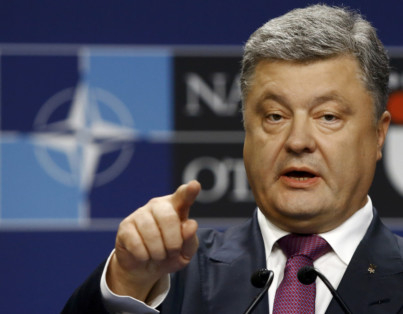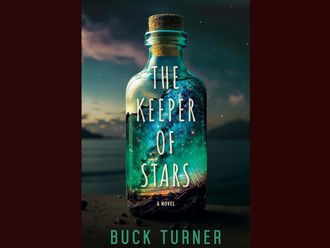
Despite recent setbacks to the ideal of European unity, there is at least one national leader who appears to believe in it as much as the most ardent federalists in Brussels — Ukrainian President Petro Poroshenko. He is just the kind of supporter the European Union (EU) doesn’t need.
Poroshenko on Thursday published an eloquent opinion piece in the European edition of Politico that makes clear his desire: “Brexit or not, crisis or not, war or not, we will go the way of EU integration,” he wrote.
One would think EU leaders would be heartened. After all, even tiny Iceland last year dropped its bid to join the union, and now the United Kingdom is leaving. Ukraine, one of the biggest countries in Europe, with a population of about 40 million, is still loyal to the ideal that inspired the Euromaidan revolution of 2013-2014.
Through those long, cold months, EU flags — the same ones Brexiters trampled and burned — flew above the grimly resolute crowds who repelled attacks by former president Viktor Yanukovych’s riot police. They flew over Kiev when dozens of protesters were shot — it’s still not known by whom — in February, 2014. The ordinary Ukrainians who deposed Yanukovych saw the EU as an alternative to Russian President Vladimir Putin’s overly tight embrace and his dysfunctional Eurasian Union. As Poroshenko wrote in Politico, it symbolised “more fairness and respect, less corruption and post-Soviet absurdity”.
Poroshenko’s loyalty would be more compelling, where it not for the fact that this vision is not what he has delivered since he was elected president months after Euromaidan. He is still struggling with conflicts of interest. The confectionary business he had promised to sell is still his, and too much of Ukraine belongs to his friends and business partners. Most recently, Poroshenko amended a long-awaited law lowering import duties on used cars. His changes allow a Ukrainian to import just one car, delivering it personally across the border, and ban its resale — a post-Soviet absurdity if ever there was one, unless one remembers that one of his closest associates, Oleg Gladkovsky, is a shareholder in Bogdan, a struggling Ukrainian automaker dependent on protectionist government policies.
During Poroshenko’s two years in power, the Ukrainian government has irritated EU leaders with its insincerity in rooting out corruption and inability to stick to the political terms of a truce German Chancellor Angela Merkel and French President Francois Hollande negotiated with Putin. The country is a bundle of problems the EU doesn’t want to tackle in the foreseeable future. Even the promises it has already made — for example, visa-free travel — feel uncomfortable now that immigration is such a contentious subject.
In June, European leaders led by Merkel decided to put off the visa-free regime for Ukraine, Georgia and Kosovo until an emergency brake mechanism is developed to cut it off at any point. Ukrainian Prime Minister Volodymyr Groysman, another close Poroshenko associate, says he believes his country will join the EU within the next decade — a deadline no one outside of Ukraine would ever think of setting. In an April referendum, voters in the Netherlands demanded that the government shoot down an EU trade and association agreement, not least because the referendum’s organisers presented it as a step toward full accession, which would mean free movement for Ukrainians throughout Europe. In the current political climate, tens of millions of potential foreign workers from a country with a per capita gross domestic product of $3,200 (Dh11,769) are a no-no.
Poroshenko knows all that. He understands EU accession won’t happen on his watch or his successor’s. He must also realize that Brexit has just pushed this already remote prospect so far into the future that it’s not even worth discussing: The EU is not about to replace the UK with Turkey, much less a far poorer, shakier country such as Ukraine. So the reason he is pledging allegiance to a union that doesn’t want him and cannot have him is more pragmatic. Poroshenko is calling on Europe’s leaders to pull together and push for more unity because he if afraid that discord in the EU will leave him alone to face Putin. If Merkel and Hollande are busy with the fallout from Brexit, will they still hold Putin to his obligations under the Minsk truce that has frozen the conflict in eastern Ukraine? Will Europe’s united front on sanctions against Russia hold? Will individual EU members choose to re-establish ties with Russia as the union grows less stable?
Such a scenario will be disastrous for Poroshenko, who has done a bad job of selling his country’s Europeanness to Europeans. That’s why, in his Politico piece, he lashes out at eurosceptics’ “greed and narrow-mindedness masked as pragmatism”: That’s exactly the attitude that could lead to a rapprochement with Putin.
Post-Euromaidan Ukrainian governments have failed miserably at turning the nation’s European ambitions into a real-life transition. Poroshenko could do more for his country’s European aspirations by emulating the qualities he claims to admire. That doesn’t mean, however, that the ambition itself should be dismissed. The EU still has the resources to help the country with investment, advice, educational and cultural exchanges. It shouldn’t forget Ukraine, even if its problems are now less important to the union than its own.
— Bloomberg
Leonid Bershidsky is a Bloomberg View columnist.








